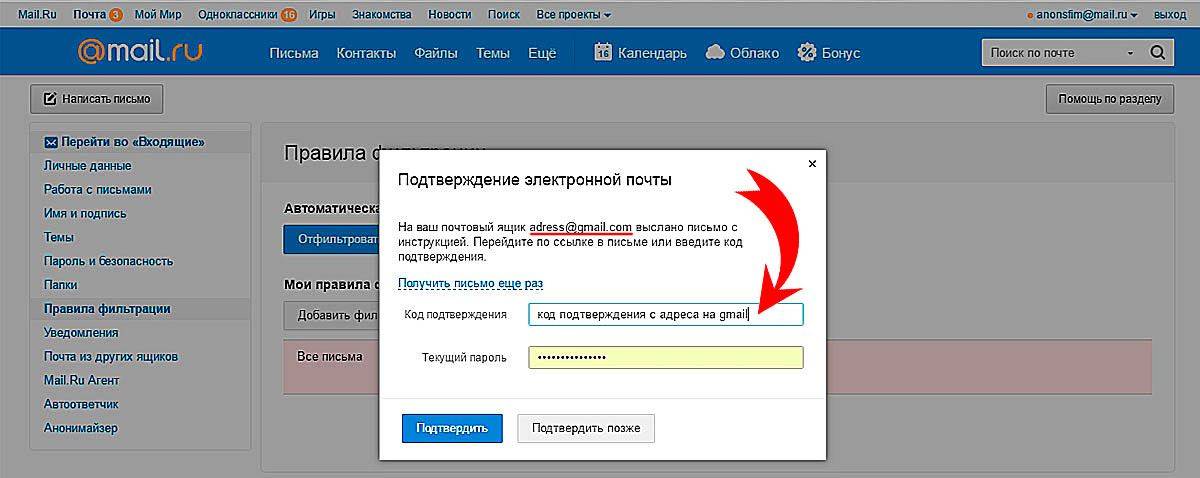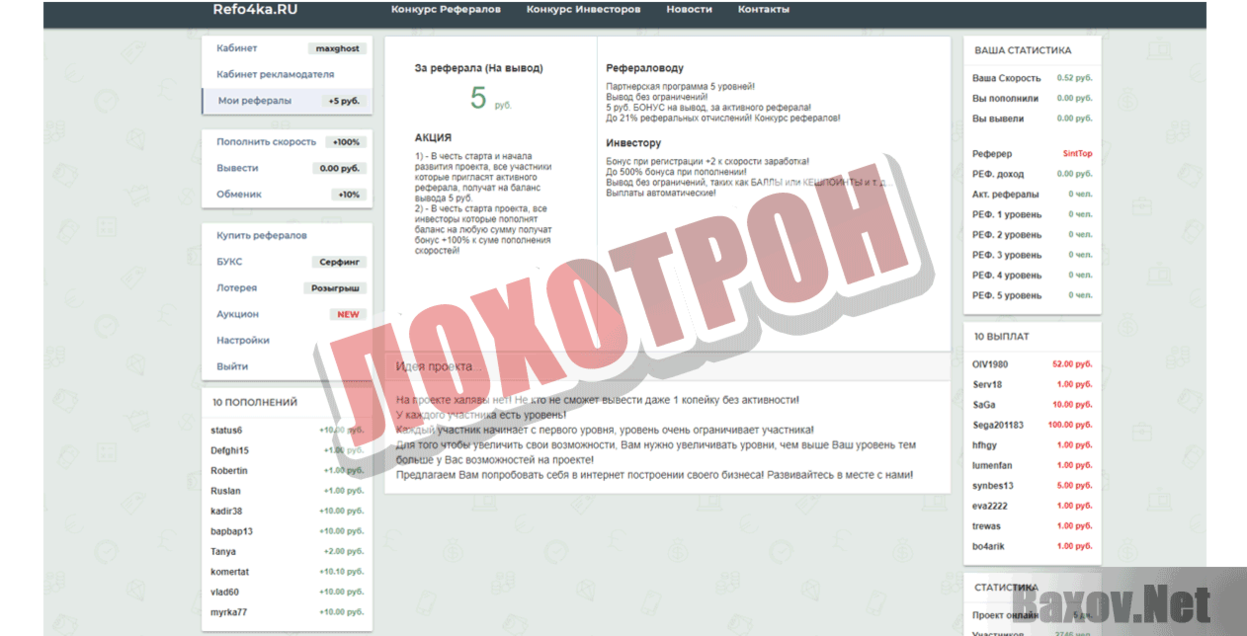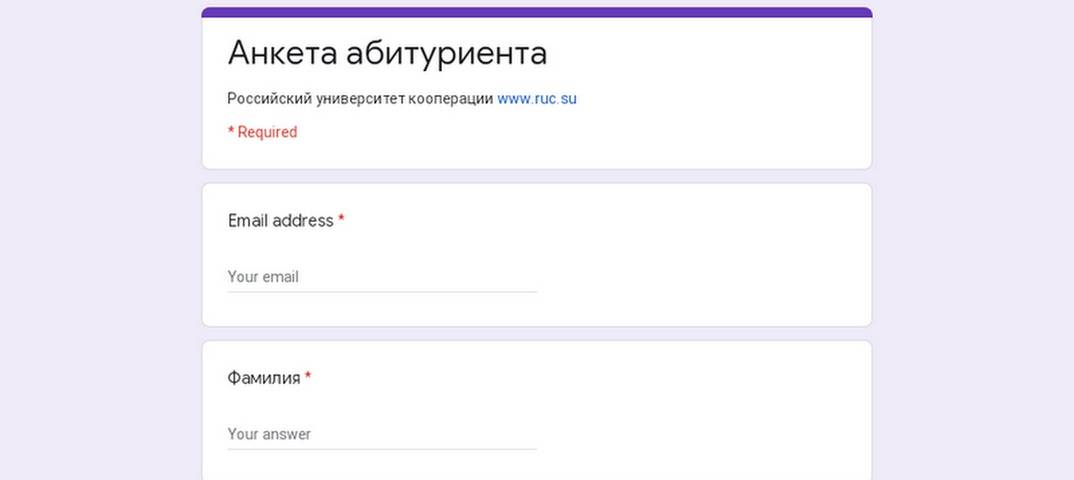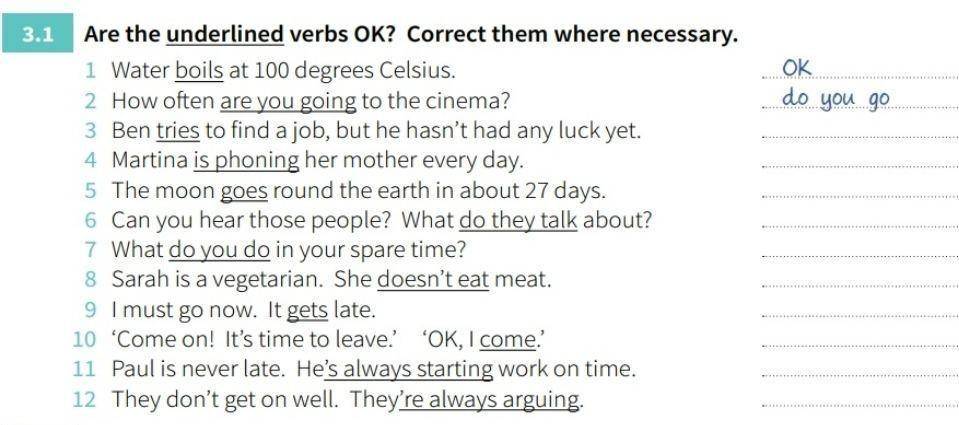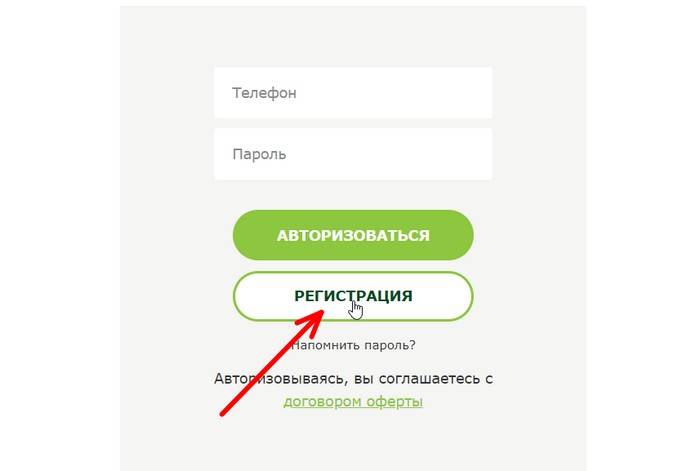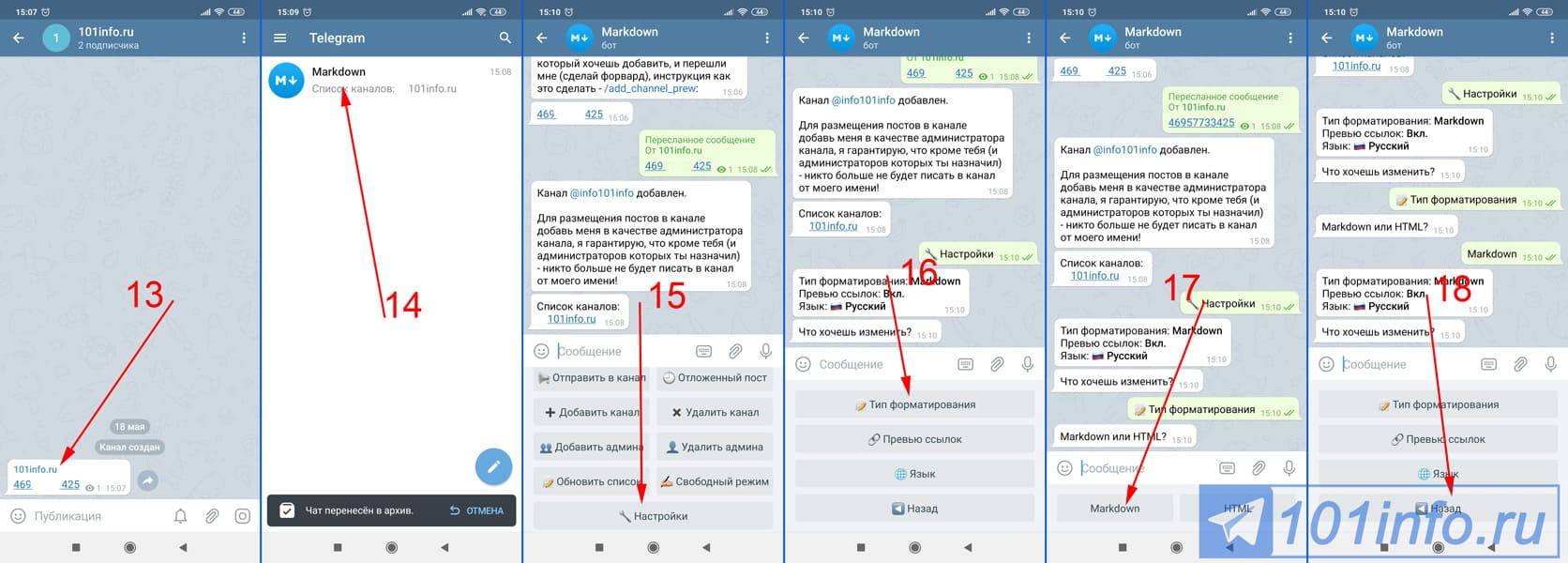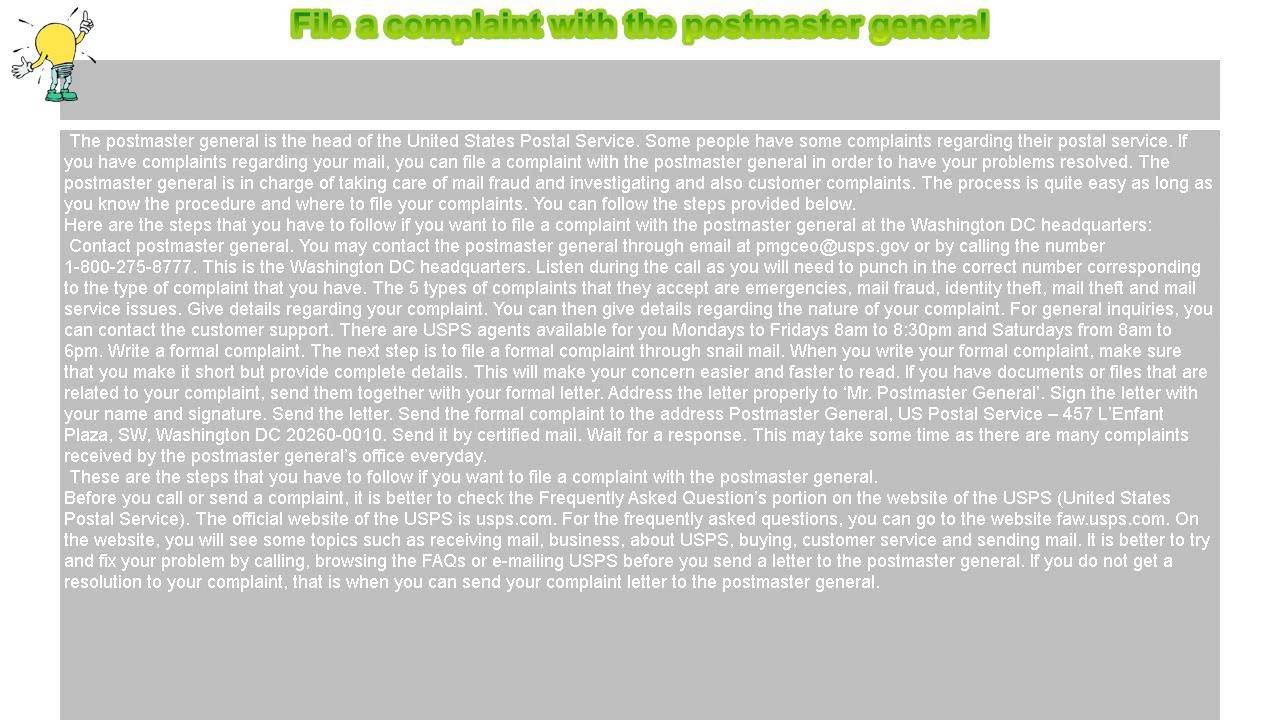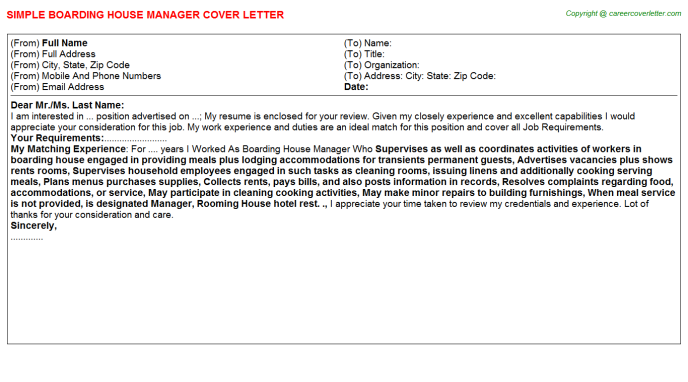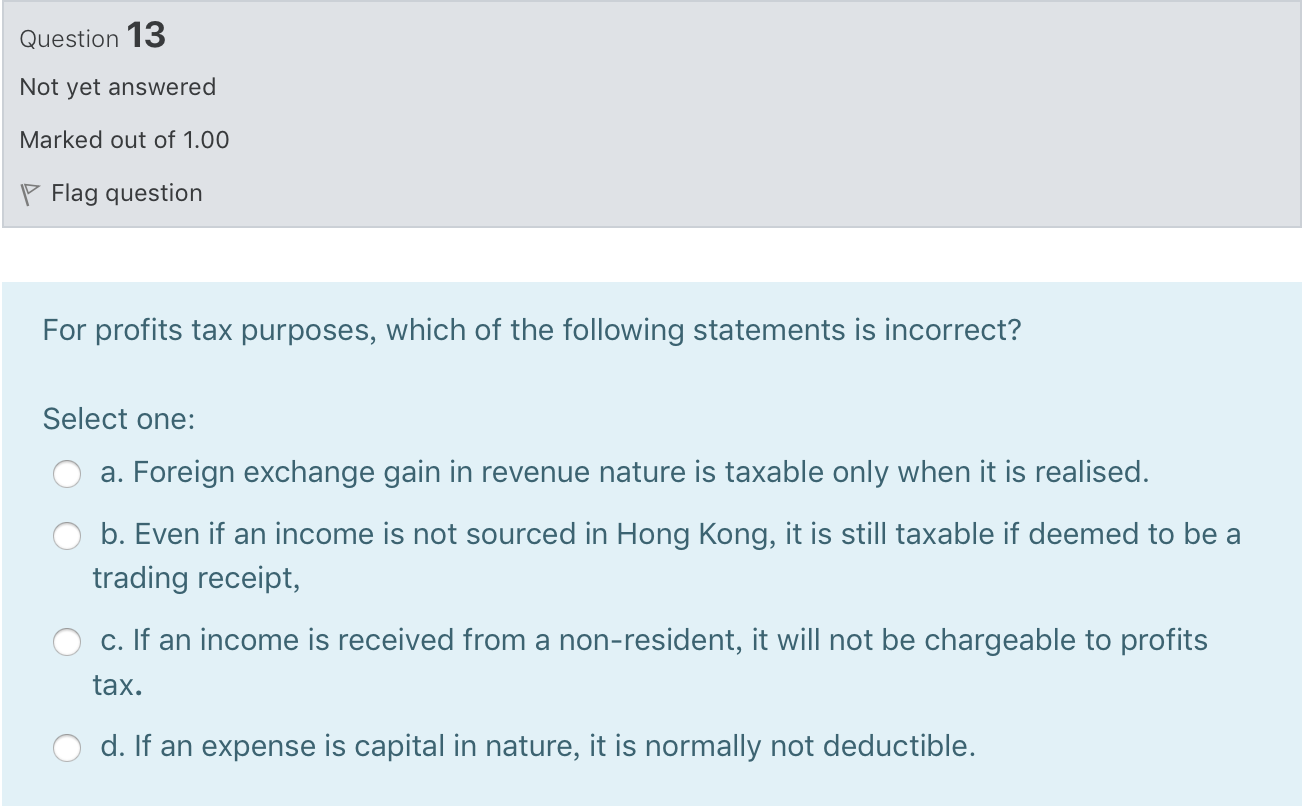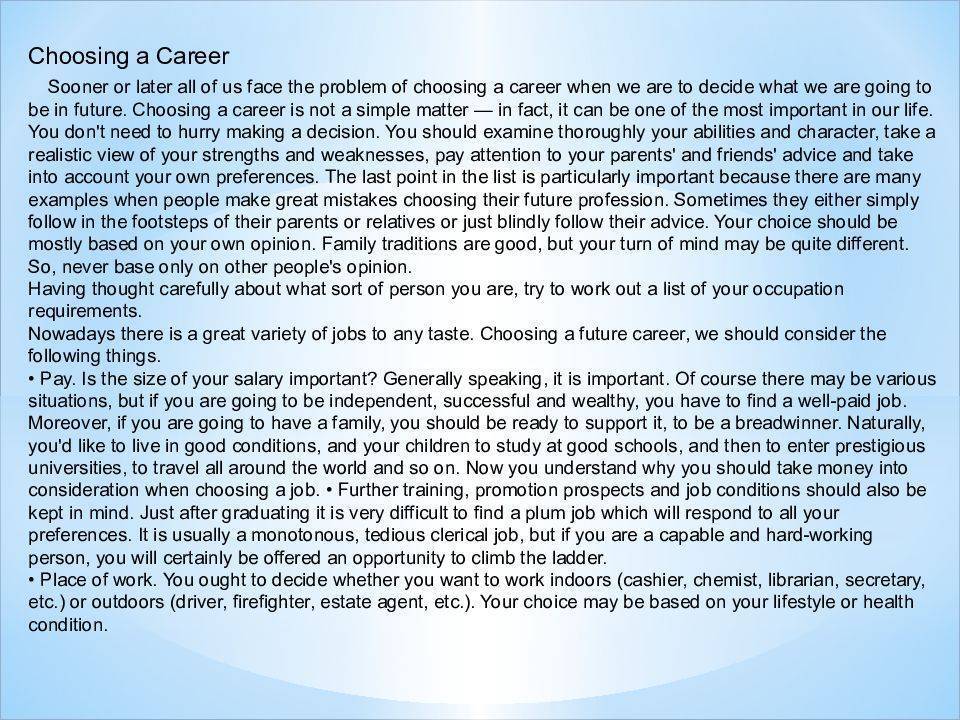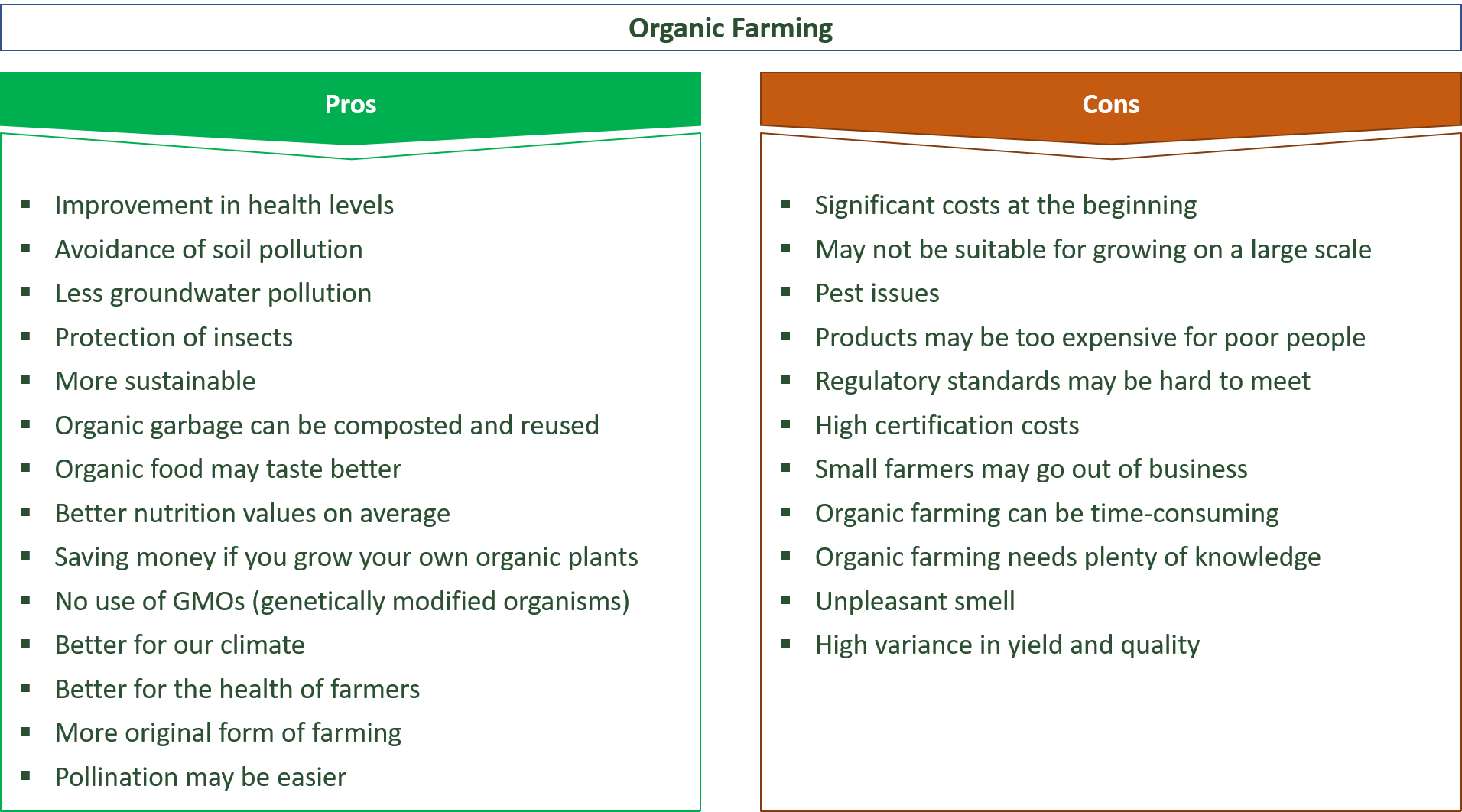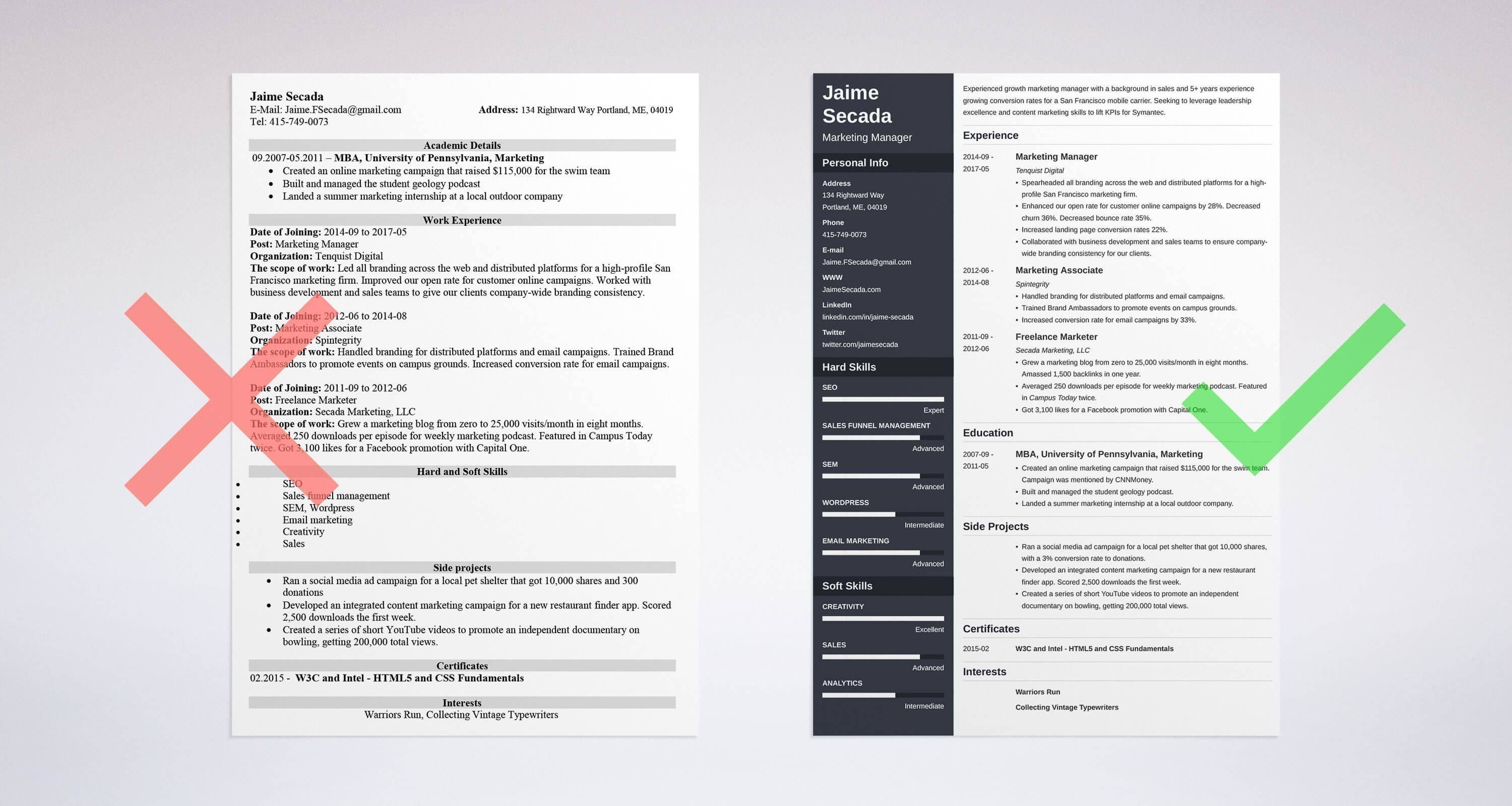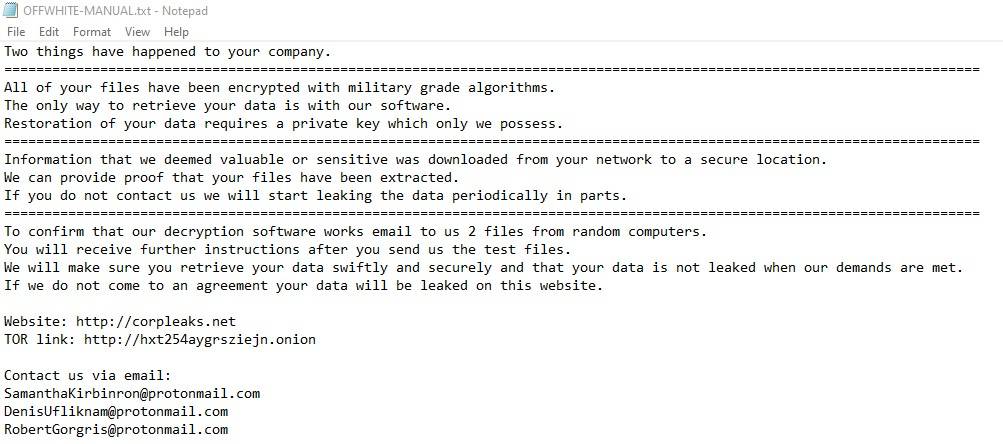How can a work permit be re-granted or renewed?
A granted work permit would be valid for at most two years and could be extended once for another two years. At least five days but no more than 45 days before the work permit of a foreign worker expires, his employer would have to submit a dossier of application for extension of the work permit to the provincial-level Department of Labor, Invalids and Social Affairs that has granted the work permit.
After having his work permit extended, a foreigner working in Vietnam on a contractual basis and his employer would sign a new labor contract before the date the foreign worker is expected to resume working. The employer would have to send a certified copy of the signed contract to the authority that has extended the work permit.
How do you know which of these is the best career for you?
Don’t just choose one of these careers because it pays well or your parents think it’s a good fit for you. There is a way you can find out if your personality fits one of these careers. Take a career test for your work personality, learn about your personality strengths in a working environment, and see the list of careers that fit you best. This will help guide you to the best career for you.
This is your life and the career you will be investing in for years to come. Make the right career choice that brings energy and joy to who you are. After all, if you enjoy your work, you will never work a day in your life.
Learn more about CareerFitter.com. Take the career test or learn more about the career test.
24. Petroleum Engineers: $145,720
Energy sources, including fossil fuels such as oil and gas, are the lifeblood of the economy. However, extracting those important resources efficiently requires some serious know-how, and petroleum engineers play a big role.
Their main goal is to develop methods to pull oil and gas from new deposits below the Earth’s surface and design new ways to extract fossil fuels from existing wells. Typically, the responsibilities of a petroleum engineer include ascertaining operational methods, performing a cost-benefit analysis for a given project, and analyzing survey or geographic data.
Among the titles they may possess are completions engineers, who help devise the optimal way to finish a well; drilling engineers, who figure out how to efficiently and safely drill the well; production engineers, who evaluate oil and gas production after the well has been created; and reservoir engineers, who estimate the amount of oil and gas available in underground deposits, which are known as reservoirs.
- Education — Future petroleum engineers benefit from taking extensive coursework in math and science as early as high school. Entry-level jobs in the field require at least a bachelor’s degree, with coursework generally focusing on engineering principles, thermodynamics, and geology. Some universities offer five-year combined programs that lead to a bachelor’s and a master’s, which may be necessary for some employers or for those hoping for greater advancement.
- Job Outlook — When it comes to employment growth, the BLS expects petroleum engineering to be roughly average between 2020 and 2030, at 8%.
Job offer requirements
To qualify under the Employer Job Offer: In-Demand Skills stream, you must have a job offer in Ontario from an employer that meets the following requirements.
Please refer to and the Employer Guide for more details on each requirement.
1. Full-time and permanent
The job offer must be for a full-time and permanent position.
Full-time means the job must be a minimum of 1,560 hours a year and a minimum of 30 hours of paid work per week.
Permanent means the job must have no end date (also known as an indeterminate duration). Job offers that are seasonal and/or contract based are ineligible.
Note that your job offer will not qualify if it affects the employment of a person involved in a labour dispute.
2. Eligible occupation
The position offered can be in any location in Ontario (inside and outside the Greater Toronto Area) and must be in one of the following occupations in National Occupational Classification (NOC) Skill Level C or D:
- NOC 3413 – nurse aides, orderlies and patient service associates
- NOC 4412 – home support workers and related occupations, excluding housekeepers
- NOC 7441 – residential and commercial installers and servicers
- NOC 7511 – transport truck drivers
- NOC 7521 – heavy equipment operators (except crane)
- NOC 7611 – construction trades helpers and labourers
- NOC 8431 – general farm workers
- NOC 8432 – nursery and greenhouse workers
- NOC 8611 – harvesting labourers
- NOC 9462 – industrial butchers and meat cutters, poultry preparers and related workers
The position offered must be outside the Greater Toronto Area (City of Toronto, Durham, Halton, York and Peel regions) and must be in one of the following occupations in National Occupational Classification (NOC) Skill Level C or D:
- NOC 9411 – machine operators, mineral and metal processing
- NOC 9416 – metalworking and forging machine operators
- NOC 9417 – machining tool operators
- NOC 9418 – other metal products machine operators
- NOC 9421 – chemical plant machine operators
- NOC 9422 – plastics processing machine operators
- NOC 9437 – woodworking machine operators
- NOC 9446 – industrial sewing machine operators
- NOC 9461 – process control and machine operators, food, beverage and associated products processing
- NOC 9523 – electronics assemblers, fabricators, inspectors and testers
- NOC 9526 – mechanical assemblers and inspectors
- NOC 9536 – industrial painters, coaters and metal finishing process operators
- NOC 9537 – other products assemblers, finishers and inspectors
3. Median wage level
The pay of the job offered must meet or be higher than the median wage level, for that occupation, in the specific region of Ontario where you will be working. To find the median wage, go to the Job Bank website. Enter the occupation title and NOC code of the job offer into the occupation search. Then enter the location where you will be working into the filter search. Refer to the median wage level listed on the chart.
If the wage of the employment region where the applicant will work or report to work is not available on the wage report, the Ontario wage should be used.
If you are already working in the position, the wage of the job offer must be equal to or greater than the wage level that the employer currently pays you in that position, in addition to meeting or exceeding the median wage level.
These wage requirements do not apply if you have a collective agreement (a written contract between the employer and a union), in your workplace, that determines your wages.
4. Position is urgently necessary to employer’s business
The position offered must be urgently necessary to your employer’s business. This means that the job offer must align with your employer’s existing business activities and the position must be urgently needed to maintain or grow ongoing business activity.
5. Work based in Ontario
The work you do while in the position of the job offer must occur primarily in Ontario.
You or any member of your family may only hold or have held equity in your employer’s business, either directly or indirectly if the equity is/was less than 10% and only if it was obtained as part of the remuneration package as an employee. The combined total amount of equity held by you, or any of your family members, must be less than 10%.
Note that a family member includes your spouse, common law partner and children under the age of 22, including their children.
Russian Job Market for Foreigners
1- The Best Cities to Work in Russia
There are a lot of beautiful places to see if you travel around Russia. But for a job, you need to come to the most crowded cities, such as Moscow and Saint-Petersburg.
Moscow
This is the capital of Russia and the biggest job market for foreigners. There’s a huge amount of big foreign companies that placed their Russian headquarters here, along with many foreign startups. When trying to find employment in Russia, Moscow should definitely be your go-to city.
Pros:
- A huge international community
- The biggest job market in Russia for foreigners
- A lot of expat-oriented restaurants and bars
- Most of the people know English
- Impressive modern architecture and huge Soviet buildings
Cons:
- A very crowded city with traffic jams and crowds in the underground in the rush-hour
- Huge city territory; you’re most likely to live far from your work and spend from two to four hours for transportation per day
Saint-Petersburg
Russians call this the cultural capital of Russia as it has preserved the historical look from the XIX century. It also has a big job market for foreigners, but comparatively smaller than in Moscow.
Pros:
- Beautiful and inspiring atmosphere
- Lower living cost compared to Moscow
Cons:
- Comparatively smaller salaries for the same position (than in Moscow)
- Windy and rainy weather most of the time
- Fewer people know English (compared to Moscow)
Other Cities (Sochi, Vladivostok, Irkutsk, Krasnodar, Rostov-na-Donu)
Of course, every city has its own beauty and provides specific opportunities. For example, Vladivostok is well-known among Asian countries, as it’s located next to the Eastern Russian border. So, Asian people are more likely to find a good job here. But basically, all the cities besides Moscow and Saint-Petersburg have several things in common.
Pros:
- Clean air and lots of wild nature around
- Low living cost
Cons:
- Small salaries
- Most people don’t know English
- Small international community
2- Why Work in Russia?
No matter what city you choose to work in, you should know the main advantages of Russia for expanding your business or finding a working place. Here are some of the great benefits of working and living in Russia.
- Russia is the biggest consumer market in Europe. So, opening an office right here will bring you a lot of new customers.
- Highly educated but cheap manpower. This will also be great for your business expenses.
- Great ecology. As Russia is mostly covered with forests, the air is really fresh. You can enjoy all four seasons—relatively hot summer, gold autumn, white winter, and fresh spring.
- Cultural experience. There are a lot of perky cultural experiences that you’ll certainly enjoy while working in Russia—Russian saunas, fishing, hunting, and the list goes on.
- Cheap extreme experiences. You’ll find a lot of opportunities for extreme sport experiences—parachuting, paragliding, horse riding, skiing, snowboarding, etc.
- Spacy. You’ll be surprised by Russia’s extremely wide streets and high buildings, especially in Moscow. Several expats even say that everything in Russia is huge—well, the territory is big, so Russians aren’t shy in using it.
3- What Documents do Foreigners Need for a Russian Job?
In order to legally work in Russia, you need to have a working visa. To help you out, we’ve provided a rundown of the visa requirements to work in Russia.
Usually, the hiring company sends an official job offer to your native country. If you’re already in Russia, you’ll need to go back to your country in order to re-do the process of visa preparation. Remember that this visa gives you the right to work only at the company that initially sent you the offer.
You won’t need a work permit if you already hold a temporal Russian residence, for example if you officially study there or are acknowledged as a reporter or teacher.
Also, once you’ve found a job in Russia, make sure that you sign two contracts—one in Russian and one in your native language. This is a legal requirement in Russia in case you have any problems later and get sent to the court.
Overview
The Employer Job Offer: In-Demand Skills stream gives foreign workers with a job offer in specific in-demand occupations such as in agriculture, construction, trucking, personal support work, and other select occupations the opportunity to apply to permanently live and work in Ontario. This stream is open to foreign workers in and outside of Canada.
You must first register in the OINP’s Expression of Interest System and receive an invitation to apply before you can apply online to be nominated by the Ontario government for permanent residence.
If you are nominated, your next step is to apply to the federal government through Immigration, Refugees and Citizenship Canada (IRCC). They make the final decision on who becomes a permanent resident.
Solar Photovoltaic Installer
 If you like to work outside and you like working with your hands and tools, this job could be perfect for you. Your main task is to install solar panels on roofs.
If you like to work outside and you like working with your hands and tools, this job could be perfect for you. Your main task is to install solar panels on roofs.
The good news is your starting pay is about $44,890 a year.
But the potential bad news is – you can’t be afraid of heights to have this career.
What kind of education or training does a solar installation expert need?
More good news! It’s one of those high-paying jobs that doesn’t require a college degree and most companies will train you. Companies offer on-the-job training that could take up to a year.
Now if you want to look impressive and want a better chance of landing the gig, some technical schools and community colleges offer online solar energy training courses that will help get you started in your solar career.
Your Resume Photo
What if you have a four-year degree and you want to apply to jobs in Japan?
Just like any country, you start with a resume, and Peter told us an interesting difference between Japanese resumes and those in Europe and the US: photos.
It’s standard practice in Japan to include a photo of yourself on your resume so a hiring manager can put a face to the list of skills.
He also gave us some helpful tips for the photo:
- Get a professional-looking headshot at a photo kiosk
- No selfies
- No cell phone shots
- No standing next to your car
- No holding a beer
- No giving the peace sign
TL;DR: no casual photos.
Attaching a photo may seem weird to Westerners, but if you send a resume to a Japanese company without one, it’ll definitely go in the trash.
Physician Assistant (PA)
Median salary in 2020$115,390Projected growth rate between 2019 and 2029: 31% (much faster than average)
A physician assistant (also known as a PA) is a licensed medical professional who provides routine patient care. Just like a medical doctor (MD), a physician assistant can examine, diagnose, and treat patients; prescribe medication; and develop treatment plans. But unlike doctors, who work independently, PAs must be supervised by an MD. PAs can work in a variety of settings (including doctors’ offices and hospitals) and within different specialties (from primary care to surgery).
A career as a physician assistant starts with a bachelor’s degree in biology or a related field, followed by a master’s degree program (often called “PA school”), a national certification exam, and licensing (requirements vary by state).
Recruitment Agencies for Jobs In Australia
Like New Zealand, it is extremely worth while registering with a recruitment agency. They will help you find a new job and can even find you a job while you are still in New Zealand. Please find below some of the recruitment agencies in Australia and their specialities:
Healthcare Recruitment
Healthcare workers are highly sort out in Australia. Nurses, Midwifes, Doctors, Allied Health and Aged Care Professionals are all in high demand.
Healthcare Australia can help you get placed depending on your wants and needs (https://www.healthcareaustralia.com.au/).
General Recruitment Agencies:
- Adecco – http://www.adecco.com.au
- Chandler MacLeod – http://www.chandlermacleod.com.au
- Hays – http://www.hays.com.au/
- Manpower – http://www.manpower.com.au
Accounting Recruitment Agencies:
- Hays – http://www.hays.com.au
- HJB – http://www.hjb.com.au
- KPMG – http://www.kpmg.com.au
- Michael Page – http://www.michaelpage.com.au
- Robert Half – http://www.roberthalf.com.au
- Robert Walters – http://www.robertwalters.com.au
- Slade – http://www.sladegroup.com.au
Information Technology (IT) Recruitment Agencies:
- Affinity – http://www.affinityit.com.au
- Ambit – http://www.ambit.com.au
- Ambition – http://www.ambition.com.au
- Ignite – http://www.igniteservices.com/
- Modis – https://www.modis.com.au/jobs
Executive Recruitment Agencies:
- Korn Ferry – http://www.kornferry.com
- KPMG – http://www.kpmg.com.au
- Michael Page – http://www.michaelpage.com.au
- Sacs Consulting – https://sacsconsult.com.au/
For general information on employment in Australia, career advice, resume templates, salary surveys and more visit http://www.employmentguide.com.au.
5. Orthodontists: $267,280
Orthodontists specialize in corrective measures for the teeth and are often referred out by the patients’ dentists. These doctors frequently take X-rays, apply braces, create mouth guards, and perform other procedures as needed.
High-achieving orthodontists require good communication skills, as they work with patients directly, plus strong analytical and problem-solving abilities. While some work for large orthodontic offices, others own their own practice, which requires strong management skills.
- Education — After earning a college degree, future orthodontists need to complete a dental school program that involves classroom and clinical experience. These newly minted doctors must then complete a specialized residency program and sit for a licensing exam.
- Job Outlook — By 2030, the BLS expects the number of orthodontic jobs in the U.S. to reach 6,900, reflecting an 8% increase from 2020.
Conclusion
As you see, there are a lot of job possibilities for a foreigner in Russia. But you’ll definitely multiply your chances of getting a good position if you study Russian. We have the MyTeacher program for Russian-learners, which is sure to help you out here. Our teachers can help you to improve your Russian language skills to find a job in Russia and prepare you for the interview. With both Russian and your native language, you’ll have a huge advantage and get a great job offer. Keep reading RussianPod101 to improve your language skills.
We hope this article on finding a job in Russia was helpful to you, and that you found our suggested ways to find jobs in Russia practical. Thanks for reading, and best luck in your future Russian endeavors!
23. Podiatrists: $145,840
Podiatrists diagnose and treat diseases and deformities of the foot, ankle, and lower leg. They provide medical and surgical care.
Most podiatrists work in offices of podiatry, either on their own or with other podiatrists or health practitioners. Others work in private and public hospitals, in outpatient care centers, or for the government at a federal executive branch.
- Education — Podiatrists must have a Doctor of Podiatric Medicine (DPM) degree from an accredited college of podiatric medicine. A DPM degree program takes four years to complete. After earning a DPM, podiatrists must apply to and complete a three-year podiatric medicine and surgery residency (PMSR) program. Residency programs take place in hospitals and provide both medical and surgical experience. They may need to complete additional training in specific areas, such as podiatric wound care or diabetic foot care.
- Job Outlook — One drawback of a future career as a podiatrist is a potential lack of job openings. According to the BLS, employment in this sector is projected to grow 2% from 2020 to 2030, slower than the average for all occupations. An average of 900 openings for podiatrists are projected each year. Most of these openings may result from the need to replace workers who transfer or retire.
Software Architect
Software Architect is the next job on the list of the most well-paid jobs in technology. A software architect speeds up the development process by making decisions about design and setting standards for coding, tools, and platforms. As part of their job, they figure out what a client needs and build prototypes by hand.
Job Responsibilities of a Software Architect
- Data modeling
- Good programming skills and knowledge of how software is put together
- Good analytical skills
The average yearly salary of a software architect is over $114,000. In India, the demand of software architects is at an all time high, and the salaries can range from 24 Lakhs to over 40 Lakhs Rupees annually.
Technical Writer
Median salary in 2020 $74,650Projected growth rate between 2019 and 2029: 7% (faster than average)
Technical writers take complex technical ideas and translate them into language people can easily read and understand—whether that’s in the form of journal articles, educational materials, video scripts, tutorials, instruction manuals, or FAQ pages. That means they need to interact with the people designing and creating the relevant products or equipment, for example, in order to understand the ins and outs of what they’re writing about and determine what kind of documentation is necessary. Their audience might be colleagues within their own organization, clients, customers, or the general public.
Technical writers often hold degrees in English, communications, or a related field. In order to succeed as a technical writer, you’ll also need a deep understanding of computer science, engineering, medicine, or whichever specific technical field you’re writing about (in some cases, that might come in the form of a degree or prior work experience in that field).
Move to Japan Before You Job Search
One of the biggest takeaways from our talk was this: getting a job in Japan from outside Japan is really, really difficult.
Why?
A failed overseas hire is expensive for a Japanese company. The company has to pay to help you get to Japan, help you get set up, spend time training you, and get you acquainted with Japanese life.
It’s a lot of time and effort for both parties.
So if the new hire goes home, the company is back to square one and they have to spend all that time and money again.
But if the candidate is already in Japan, already knows some Japanese, and already functioning in the country, that makes them a safer bet.
So how do you get to Japan in the first place? Peter had only one answer: English teaching.
Getting an English teaching job in Japan is relatively easy and low stress. So it’s the perfect way to get set up in the country and start networking.
How high are salaries in Vietnam?
Local salaries are low compared to Western countries and newly graduated people can earn everything between USD 500 – 1,000, according to the position.
That said, foreigners usually apply for jobs where salaries tend to be higher, such as English teachers, managers, directors, and similar.
Below you can find examples of salaries for different occupations in Vietnam for 2020:
- Business Controller: USD 20,000 – 42,000
- Investment Analyst: USD 23,000 – 35,000
- Engineering Manager: USD 42,000 – 62,000
- Production Manager: USD 40,000 – 62,000
- HR Manager: USD 40,000 – 62,000
- Key Account Manager (Sales): USD 40,000 – 60,000
Scoring factors
Once you register an expression of interest under this stream you will be assigned points based on the following factors.
If you are invited to apply, you will be required to submit specific documents to support each scoring factor for which you received points. Scoring factors are not the same as stream criteria. You must meet all criteria for this stream and provide the mandatory documents with your application. Refer to the document checklist for the Employer Job Offer: In-Demand Skills stream.
Employment / labour market factors
Cumulative, full-time or part-time equivalent.
- 12 Months or more – 4 points
- Less than 12 months – 0 points
Canadian work experience: earnings history
Based on a Notice of Assessment issued by the Canada Revenue Agency in the last five years.
- $40k or more earnings in a year – 3 points
- Less than $40k earnings in a year – 0 points
Employer requirements
Please refer to and the Employer Guide for more details on each requirement.
1. General requirements
To qualify under the Employer Job Offer: In-Demand Skills stream, your employer must:
- have been in active business for at least three years prior to submitting your application
- have business premises in Ontario where you will work
- have no outstanding orders made against them under the Ontario Employment Standards Act, 2000 or the Occupational Health and Safety Act
- demonstrate that enough effort was made to recruit a Canadian citizen or a permanent resident prior to offering the position to you (this only applies if you are currently living outside of Canada or working outside of Ontario)
Please note, if your employer is seeking an approval of a NOC 7511 – Transport truck driver employment position, they must demonstrate that they have a valid CVOR certificate, as defined in subsection 1 (1) of the Highway Traffic Act, and a safety rating under that Act of Excellent, Satisfactory or Satisfactory Unaudited.
2. Revenue requirements
Your employer’s business must meet the relevant revenue requirement for the most recently completed fiscal year (the year used for tax or accounting purposes):
- a minimum of $1,000,000 in total gross annual revenue if you will work or report to work at a location in the Greater Toronto Area (City of Toronto, Durham, Halton, York and Peel regions)
- a minimum of $500,000 in total gross annual revenue if you will work or report to work at a location outside the Greater Toronto Area
Meaning of report to work
In cases where the applicant will work at more than one location, the location where the applicant will report to work means either:
- the location where the applicant’s immediate supervisor or manager works
- the location of the administrative office where the applicant will receive work assignments
3. Full-time employee requirements
Your employer’s business must also have at the time of application submission one of the following:
- at least five full-time employees who are Canadian citizens or permanent residents who work at the location where you will work, or will report to work, if you will work or report to work at a location in the Greater Toronto Area (City of Toronto, Durham, Halton, York and Peel regions)
- at least three full-time employees who are Canadian citizens or permanent residents who work at the location where you will work, or will report to work, if you will work or report to work at a location outside the Greater Toronto Area
Meaning of full-time employee
A full-time employee is an employee who has worked a minimum of 30 hours per week.
4. Employer Form
Your employer must make an application for approval of an employment position by filling out and signing an Employer Form.
Your employer then must give you the form so you can scan and upload it with your application.
When we assess your application, we may need additional supporting documents from your employer to validate information included in the Employer Form. Please read the Employer Checklist for a list of possible documents that may be requested.
Three Questions Every Japanese Interviewer Asks
Finding a job in Japan can be more difficult than in your home country because maybe the job you’re shooting for isn’t in demand. Or you have some skills the company is looking for, but not everything they’re looking for.
This is a tricky situation with no easy answers, but Peter gives us some solid advice for navigating it.
First, the good news: a lot of Japanese companies are hiring their “first foreigner,” meaning if you’re a flexible jack-of-all-trades, a company may hire you to be the “English” face of the company. Maybe not the sales or marketing position you wanted, but it’s something.
Also, Peter gives us the three questions every Japanese interviewer is trying to answer:
- Can you do the job?
- Will you like the job?
- Do we think we’ll like you?
If you can answer these three questions, you’ll show the interviewer you’re a good fit for the company.



